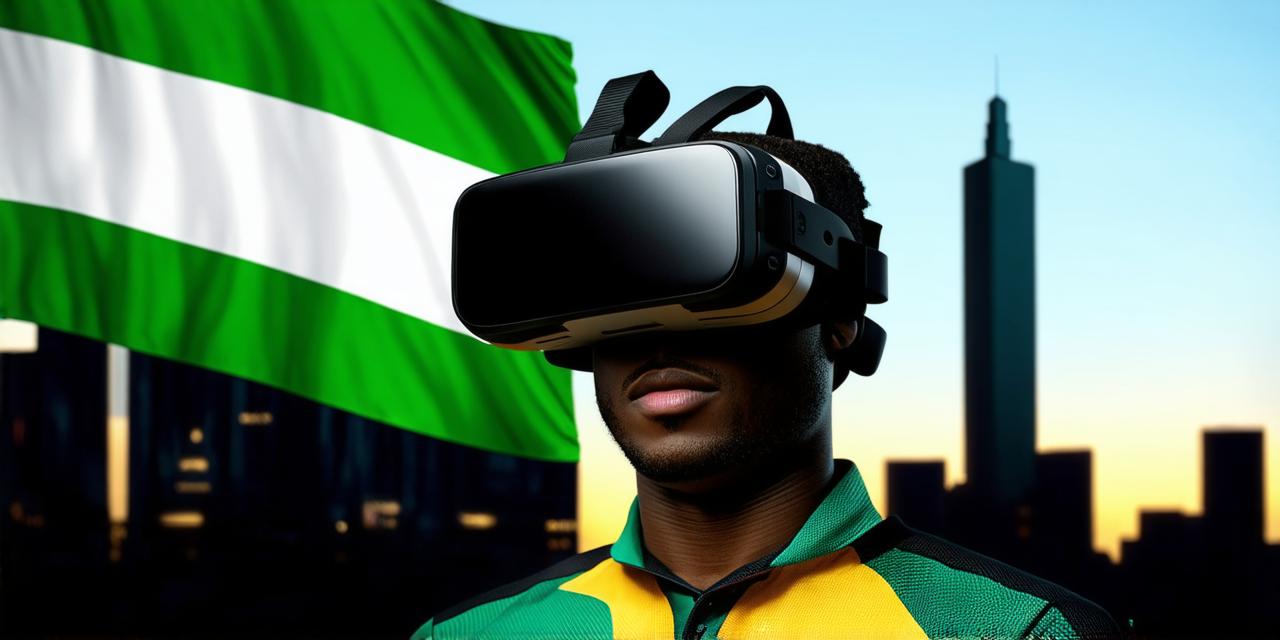Virtual reality (VR) technology has been gaining popularity worldwide and Nigeria is no exception. With the increasing demand for VR experiences, many businesses are exploring ways to incorporate this technology into their operations. However, there are several factors that determine the cost of virtual reality in Nigeria, which makes it difficult to give a straightforward answer. In this article, we will explore some of the key factors that affect the cost of VR in Nigeria and provide a comprehensive analysis of what you can expect to pay.
The Cost of Hardware
One of the most significant factors that determine the cost of virtual reality in Nigeria is the hardware required to create an immersive experience. There are several different types of VR hardware available, ranging from low-end devices like the Samsung Gear VR to high-end systems like the Oculus Quest 2.
The cost of each type of VR hardware can vary greatly depending on its specifications and capabilities.
For example, the Oculus Quest 2 is a standalone VR headset that offers a wide range of features and capabilities. It is designed to provide a fully immersive experience without the need for a high-powered PC or laptop. The Oculus Quest 2 costs around $400 in the US, but it may be more expensive to purchase in Nigeria due to import taxes and other fees.
On the other hand, the Samsung Gear VR is a mobile VR headset that requires a compatible smartphone to function. It is a more affordable option than the Oculus Quest 2, with prices starting at around $100 in the US. However, it may still be more expensive to purchase in Nigeria due to import taxes and other fees.
The Cost of Software
Another important factor that determines the cost of virtual reality in Nigeria is the software required to create and run VR applications. There are several different types of VR software available, ranging from simple games and simulations to more complex applications for industries like architecture, engineering, and healthcare.
The cost of VR software can vary greatly depending on its complexity and functionality.
The Cost of Development
The cost of developing a virtual reality application in Nigeria can vary greatly depending on the complexity of the project and the expertise of the development team. There are several different types of VR development teams available, ranging from small indie studios to large enterprise teams with extensive experience in the field.
The cost of VR development can be broken down into several different categories, including software development, content creation, and testing. The cost of each category will depend on the specific requirements of the project and the expertise of the team.
Case Studies
To better understand the cost of virtual reality in Nigeria, it is helpful to look at some real-life examples of VR projects and their associated costs. One notable example is the work done by Nigerian VR studio, Virtual Reality Experience (VRExperience). They have developed several VR applications for various industries, including education, healthcare, and entertainment.
The cost of developing these VR applications varied greatly depending on the complexity of the project and the expertise of the development team. For example, their VR educational application “Learn Africa” was developed in partnership with the University of Cambridge and costs around $100,000 to $200,000. On the other hand, their VR entertainment application “VR Game Zone” cost around $50,000 to develop.
Conclusion
In conclusion, the cost of virtual reality in Nigeria can vary greatly depending on several factors, including hardware requirements, software complexity, and development expertise. While there are many options available for businesses looking to incorporate VR technology into their operations, it is important to carefully consider the costs associated with each option before making a decision. By understanding the various factors that affect the cost of virtual reality in Nigeria, businesses can make informed decisions about whether this technology is right for them and what they can expect to pay.
